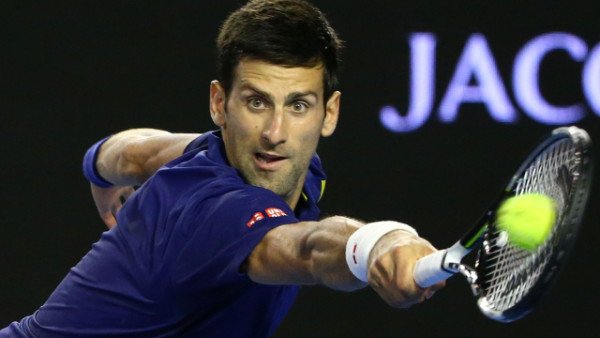Novak Djokovic in Detention Ahead of Visa Appeal Hearing
Novak Djokovic has been detained in Australia ahead of a court hearing that will determine whether he can stay in the country.
The men’s tennis No 1 faces deportation after his visa was canceled for a second time, with the government labelling him a threat to public health.
Novak Djokovic’s lawyers are appealing against what they called an “irrational” decision, with the hearing set for January 16.
The 34-year-old unvaccinated tennis star is still scheduled to play the Australian Open on January 17 in Melbourne.
If the Serbian were to win the tournament, he would become the most successful men’s tennis player in the history of the sport with 21 major titles.
However, January 16 hearing, which has been scheduled for 09:30 local time, is crucial if Djokovic is to be able to compete just hours later.
If he loses the appeal, the world’s top-ranked men’s tennis player faces deportation and a three-year visa ban.
On January 15, shortly after an online pre-trial hearing, Novak Djokovic returned to the immigration detention hotel where he was held earlier this week. He will remain there until his final appeal on January 16.

Novak Djokovic’s Australia Visa Revoked for Second Time
Novak Djokovic’s Australia Entry Delayed over Visa Issue
Coronavirus: Novak Djokovic Tests Positive for Covid-19
Novak Djokovic’s visa was first revoked shortly after his arrival in Melbourne on January 6, after Australian Border Force officials said he had “failed to provide appropriate evidence” to receive a vaccine exemption.
The tennis star was detained for days at an immigration hotel, before his visa was reinstated by a judge, who ordered his release, ruling that border officials ignored correct procedure when he arrived.
On January 14, Immigration Minister Alex Hawke once again canceled Novak Djokovic’s visa under separate powers in Australia’s Migration Act.
The act allows the minister to deport anyone he deems a potential risk to “the health, safety or good order of the Australian community”.
PM Scott Morrison said the decision followed “careful consideration”.
Alluding to the heavy criticism his government has faced for allowing the unvaccinated player into Australia, Scott Morrison said: “Australians have made many sacrifices during this pandemic, and they rightly expect the result of those sacrifices to be protected.”
Court documents were released on January 15 that showed Alex Hawke chose to cancel Novak Djokovic’s visa because – in his view – the unvaccinated player’s presence could fuel opposition to Covid-19 vaccination.
“[I] consider that his presence may be a risk to the health of the Australian community,” he wrote in a letter to Novak Djokovic and his lawyers, adding that he believed it could also provoke “civil unrest” because he is “a person of influence and status”.
Novak Djokovic’s legal team say their grounds for appeal will centre on the “invalid and illogical” rationale of Alex Hawke’s decision, which lawyer Nick Wood said was based on the threat of “exciting anti-vax sentiment”.
Nick Wood said he believed deporting the Serbian player would potentially do the same thing.
Serbian President Aleksandar Vucic, meanwhile, condemned the Australian minister’s decision, telling Novak Djokovic in an Instagram message: “Novak, we stand by you.”
“If you wanted to ban Novak Djokovic from winning the 10th trophy in Melbourne why didn’t you return him immediately, why didn’t you tell him ‘it is impossible to obtain a visa’?” President Vucic added.
Spanish tennis star Rafael Nadal, one of Novak Djokovic’s biggest rivals, said on January 15: “[The] Australian Open is much more important than any player. If he’s playing finally, okay. If he’s not playing, the Australian Open will be great… with or without him.”
Japanese player Naomi Osaka described the controversy surrounding Novak Djokovic as “an unfortunate situation”.
“He’s such a great player and it’s kind of sad that some people might remember [him] in this way. But I also think it’s… up to the government how Australia is deciding to handle it,” she added.
